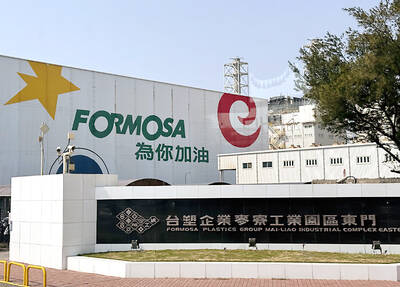The Ministry of Foreign Affairs (MOFA) announced yesterday that Taiwan would soon sign up to the Government Procurement Agreement (GPA) under the WTO, breaking a six-year political deadlock between Taiwan and China.
“Our country is expected to join the WTO’s GPA in the near term and to become a new party to the agreement,” MOFA said in a press release announcing Taiwan’s decision to open its huge government procurement market to international competitors.
Signing the GPA was one of Taiwan’s major commitments when it became a WTO member in 2002, and Taiwan completed all necessary bilateral consultations with GPA member countries to become part of the agreement by the end of that year.
But because of political opposition from China on the grounds that certain terminology in the schedule of government agencies involved — such as the Presidential Office, the Executive Yuan and MOFA — implied sovereignty, Taiwan’s GPA accession stalled.
MOFA said that thanks to the active coordination and consultations by the GPA committee chairman, the US and the EU, “a preliminary consensus [on Taiwan’s accession] has been reached.”
If everything goes smoothly, Taiwan is expected to join the GPA in the near future, with sources in Taiwan and Geneva suggesting that Taiwan could become a member of the GPA as early as Dec. 9, when the GPA committee is scheduled to hold its last formal meeting for the year.
As to the format of Taiwan’s accession and compromise over the political controversy, a senior official, who spoke on condition of anonymity, said “it is acceptable to all parties,” without going into detail.
“It’s fair to say that both sides of the Taiwan Strait have shown good will,” said another ranking official, referring to the thawing relations between Taipei and Beijing since President Ma Ying-jeou (馬英九) took office on May 20.
The accession marks a substantial milestone in Taiwan’s participation in international trade organizations. As a GPA member, Taiwan’s government procurement market would be open to other GPA members, and vice versa, based on the principles of reciprocity and national treatment, the MOFA said.
The WTO Secretariat estimated the government procurement market in GPA signatory countries totaled US$5.55 trillion per year, which would now be open to Taiwanese companies.
Foreign firms looking for a piece of Taiwan’s government procurements also welcomed the announcement.

EXTRATERRITORIAL REACH: China extended its legal jurisdiction to ban some dual-use goods of Chinese origin from being sold to the US, even by third countries Beijing has set out to extend its domestic laws across international borders with a ban on selling some goods to the US that applies to companies both inside and outside China. The new export control rules are China’s first attempt to replicate the extraterritorial reach of US and European sanctions by covering Chinese products or goods with Chinese parts in them. In an announcement this week, China declared it is banning the sale of dual-use items to the US military and also the export to the US of materials such as gallium and germanium. Companies and people overseas would be subject to

Taiwan Semiconductor Manufacturing Co (TSMC, 台積電) founder Morris Chang (張忠謀) yesterday said that Intel Corp would find itself in the same predicament as it did four years ago if its board does not come up with a core business strategy. Chang made the remarks in response to reporters’ questions about the ailing US chipmaker, once an archrival of TSMC, during a news conference in Taipei for the launch of the second volume of his autobiography. Intel unexpectedly announced the immediate retirement of former chief executive officer Pat Gelsinger last week, ending his nearly four-year tenure and ending his attempts to revive the

WORLD DOMINATION: TSMC’s lead over second-placed Samsung has grown as the latter faces increased Chinese competition and the end of clients’ product life cycles Taiwan Semiconductor Manufacturing Co (TSMC, 台積電) retained the No. 1 title in the global pure-play wafer foundry business in the third quarter of this year, seeing its market share growing to 64.9 percent to leave South Korea’s Samsung Electronics Co, the No. 2 supplier, further behind, Taipei-based TrendForce Corp (集邦科技) said in a report. TSMC posted US$23.53 billion in sales in the July-September period, up 13.0 percent from a quarter earlier, which boosted its market share to 64.9 percent, up from 62.3 percent in the second quarter, the report issued on Monday last week showed. TSMC benefited from the debut of flagship

TENSE TIMES: Formosa Plastics sees uncertainty surrounding the incoming Trump administration in the US, geopolitical tensions and China’s faltering economy Formosa Plastics Group (台塑集團), Taiwan’s largest industrial conglomerate, yesterday posted overall revenue of NT$118.61 billion (US$3.66 billion) for last month, marking a 7.2 percent rise from October, but a 2.5 percent fall from one year earlier. The group has mixed views about its business outlook for the current quarter and beyond, as uncertainty builds over the US power transition and geopolitical tensions. Formosa Plastics Corp (台灣塑膠), a vertically integrated supplier of plastic resins and petrochemicals, reported a monthly uptick of 15.3 percent in its revenue to NT$18.15 billion, as Typhoon Kong-rey postponed partial shipments slated for October and last month, it said. The